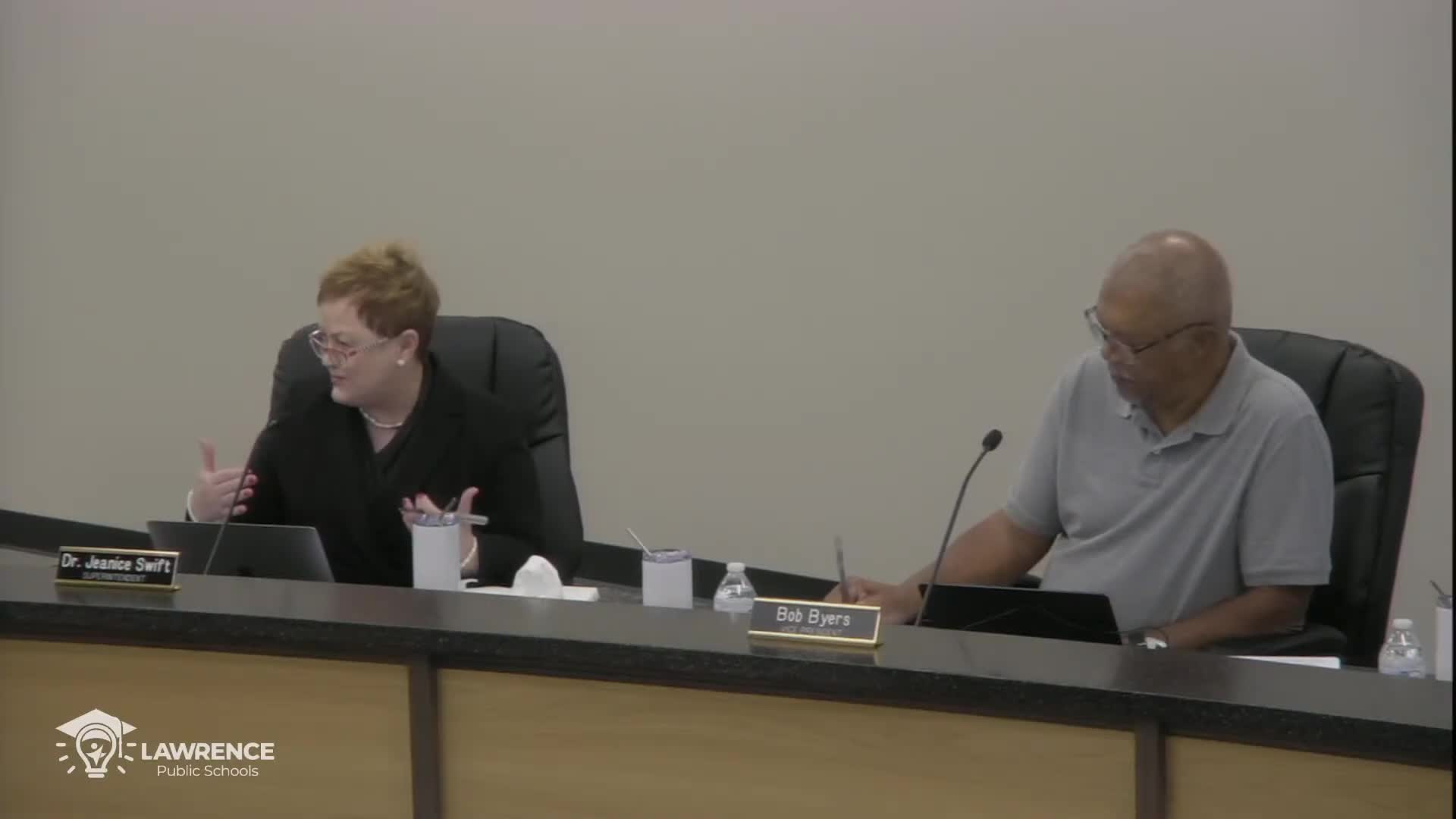Lawrence program trains 18–21-year-olds with disabilities in workplace and life skills at Pinkney campus
Get AI-powered insights, summaries, and transcripts
Subscribe
Summary
Lawrence Public Schools trustees heard a detailed update on Community Connections at Pinkney, a district transition program that serves students 18–21 with disabilities through on‑campus training, off‑campus work placements and Project SEARCH internships.
The Lawrence Public Schools Board of Education received an update Tuesday on Community Connections at Pinkney, the district’s transition program that serves students ages 18 through 21 with disabilities.
The update outlined vocational, daily‑living and community‑integration supports provided at the historic Pinkney campus. “Our goal is to ensure that every student leaves with the skills, confidence, and a plan for post‑secondary success,” said Jenna Viscomi, principal of Community Connections at Pinkney.
The program includes on‑campus work tasks—such as silverware preparation, custodial assistance and digital archiving—and off‑campus placements at local businesses. Viscomi said approximately 50 to 60 students attend the building on a given day and that 25 to 30 students are placed in community work experiences this semester, a total that includes interns at Project SEARCH sites. Project SEARCH internships are hosted at Lawrence Memorial Hospital and the University of Kansas and place students in rotations such as materials management, food and nutrition, patient transport, storeroom and sign shop work.
Project SEARCH participants receive classroom instruction and multiple work rotations; the district reported that many graduates leave the program with job offers or employment opportunities. Viscomi told the board the local Project SEARCH sites have achieved an 85 to 95 percent employment rate for graduates.
Community Connections also operates simulated apartments for instruction in meal planning, budgeting, shopping and household maintenance. Students participate in on‑campus clubs—photography, pottery, cooking and others—and volunteer activities such as Meals on Wheels routes and coat drives. The program houses additional district services, including secondary therapeutic classrooms and a suspension alternative program.
The presentation identified community partners that provide work placements and support, including Lawrence Memorial Hospital and the University of Kansas, and named local employers used for vocational experiences. Viscomi and Laurie Stitham, the district’s executive director of special education, said the program hopes to expand community partnerships, pursue grants and develop a district coffee shop and merchandise sales to create more paid work opportunities for students.
Board members praised the program’s community integration and asked for clearer public information about how community members can donate or support partnerships through the district foundation. Viscomi said the coffee shop and bakery will begin employing students in the second semester and that the team is seeking equipment and funding that will make the sites accessible for students with motor disabilities.
The board did not take a vote on the presentation; members directed staff to continue outreach with community partners and to return with implementation updates if grant or fundraising opportunities materialize.
